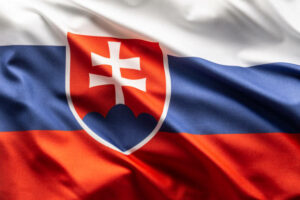Acquiring a European passport is a goal for many individuals seeking greater mobility, security, and opportunities within the European Union (EU) and beyond. While some countries maintain strict citizenship laws, others offer more accessible pathways through ancestry, residency, investment, or marriage.
This article explores the easiest European countries to obtain a passport , detailing their citizenship routes, requirements, processing times, costs, and potential obstacles. Whether you’re looking to invest in property, reconnect with ancestral roots, or settle down in Europe, this guide will help you understand your options.
🌍 Why Obtain a European Passport?
Before diving into specific countries, it’s important to understand why obtaining a European passport can be advantageous:
- Freedom of Movement : EU citizens can live, work, study, and travel freely across all 27 EU member states.
- High-Quality Healthcare & Education : Many European countries offer robust public services.
- Political Stability & Security : European nations are generally politically stable and offer strong legal protections.
- Global Travel Freedom : Passports from countries like Germany, Sweden, and France rank among the most powerful in the world in terms of visa-free access.
Now, let’s explore the top European countries that offer relatively easier paths to citizenship and passports.

🇵🇹 Portugal – Citizenship Through Residency and Investment
Overview:
Portugal is one of the most popular destinations for those seeking European citizenship due to its welcoming immigration policies and attractive Golden Visa program.
Pathways to Citizenship:
- Golden Visa Program :
- Investment Options : Real estate purchase (€350,000–€500,000 depending on property type), capital transfer (€250,000+), business creation (minimum €350,000 and at least 5 jobs).
- Residency Requirement : Minimum stay of 7 days in the first year and 14 days in each subsequent 2-year period.
- Citizenship Timeline : After 5 years of residency, applicants may apply for Portuguese citizenship.
- Naturalization :
- Non-investors can also apply after 6 years of legal residency .
- No language test required if applying based on residency alone.
Benefits:
- Dual citizenship allowed.
- No physical presence requirement in the final year before applying.
- Citizenship grants access to an EU passport.
Obstacles:
- Language proficiency (B1 level Portuguese) is typically required unless waived under certain conditions.
- Processing times can take up to 2 years after application submission.
- Real estate investments must be maintained for at least 5 years.

🇪🇸 Spain – Citizenship Through Residency and Ancestry
Overview:
Spain offers multiple routes to citizenship, including residency, marriage, and ancestry-based applications, especially for Latin Americans.
Pathways to Citizenship:
- Standard Naturalization :
- Residency Requirement : 10 years of continuous legal residency.
- Reduced to 2 years for refugees and individuals from former Spanish colonies (e.g., Argentina, Mexico).
- Golden Visa Program :
- Investment options include real estate purchases (starting at €500,000), capital transfers, or business investments.
- Leads to temporary residency, which can eventually lead to permanent residency and citizenship.
- Sephardic Jews :
- Special route for descendants of Sephardic Jews expelled during the Spanish Inquisition.
- Requires proof of Sephardic origin and ties to Spain.
Benefits:
- Strong cultural and economic ties with Latin America.
- Allows dual citizenship with select countries.
Obstacles:
- Language test (DELE B1) and constitution exam required.
- Lengthy processing times (up to 3 years).
- Citizenship requires renunciation of original nationality unless from Ibero-American countries.

🇲🇹 Malta – Fast Track via Investment
Overview:
Malta offers one of the fastest paths to EU citizenship through its Malta Individual Investor Programme (MIIP) and its successor, the Permanent Residence Scheme (PRS) .
Pathways to Citizenship:
- Citizenship by Investment (formerly MIIP) :
- Replaced by new programs but still viable under different structures.
- Investment Requirements :
- €600,000+ donation to the National Development and Social Fund.
- Real estate investment or lease for at least 5 years.
- Minimum 36 months of residency (or 12 months with exceptional contribution).
- Permanent Residence Scheme (PRS) :
- More affordable option leading to permanent residency , not immediate citizenship.
- Can eventually lead to citizenship after several years.
Benefits:
- Full EU passport with visa-free travel worldwide.
- Relatively fast process compared to other EU countries.
- Family inclusion (spouse, children, parents).
Obstacles:
- High cost of entry (hundreds of thousands to millions of euros).
- Increased scrutiny from EU institutions over investor citizenship programs.
- Due diligence checks are extensive.

🇧🇬 Bulgaria – Citizenship via Naturalization and Investment
Overview:
Bulgaria offers a relatively quick path to citizenship for non-EU nationals who make significant contributions to the country.
Pathways to Citizenship:
- Naturalization :
- Residency Requirement : At least 5 years of legal residence.
- Applicants must demonstrate language proficiency (Bulgarian at B1 level) and knowledge of Bulgarian history and culture.
- Fast-Track Citizenship :
- For investors or contributors to the national economy.
- Significant investments (typically over €1 million) can expedite the process to as little as 1–2 years.
- Descent :
- Individuals with Bulgarian ancestry can apply without residency requirements.
Benefits:
- Dual citizenship allowed.
- Low cost of living.
- Access to EU markets and travel freedom.
Obstacles:
- Limited job market and lower wages compared to Western Europe.
- Language barrier can be a major challenge.
- Political instability and corruption concerns may deter some applicants.

🇭🇺 Hungary – Citizenship via Ancestry and Residency
Overview:
Hungary offers a streamlined citizenship process for ethnic Hungarians and those willing to invest in the country.
Pathways to Citizenship:
- Ancestral Claims :
- Individuals with Hungarian heritage can apply without residency requirements.
- Must provide documentation proving connection to Hungary.
- Investment Route :
- Previously offered a government bond program (suspended in 2020).
- New programs may emerge focusing on residency and eventual citizenship.
- Residency + Naturalization :
- Citizenship after 8 years of legal residency.
- Reduced to 3 years for spouses of Hungarian citizens.
Benefits:
- Dual citizenship allowed.
- Generous treatment of ethnic Hungarians abroad.
- Relatively low cost of living.
Obstacles:
- Political tensions may affect international perception.
- Limited English-speaking population outside major cities.
- Bureaucratic delays common.

🇨🇾 Cyprus – Citizenship via Investment (Historically)
Overview:
Cyprus previously had one of the most lucrative citizenship-by-investment programs, but it was suspended in 2020 amid allegations of misuse.
Pathways to Citizenship:
- New Residency Programs :
- Focus on long-term residency rather than direct citizenship.
- Investments include real estate (€300,000+), business setup, or government bonds.
- Pathway to Citizenship :
- After 7 years of residency, applicants may qualify for naturalization.
Benefits:
- Mediterranean lifestyle and quality of life.
- Tax incentives for high-net-worth individuals.
- English widely spoken.
Obstacles:
- Citizenship-by-investment program no longer active.
- Increased due diligence and transparency requirements.
- EU pressure on CBI programs remains high.
🇮🇪 Ireland – Citizenship via Residency and Ancestry
Overview:
Ireland has a reputation for being welcoming to immigrants and offers generous rules for those with Irish heritage.
Pathways to Citizenship:
- Naturalization :
- Residency Requirement : 5 out of the last 9 years lived in Ireland.
- Continuous legal residency required.
- Birthright Citizenship :
- Children born in Ireland automatically receive citizenship unless both parents are non-EU diplomats.
- Ancestry-Based Claims :
- Individuals with Irish-born grandparents may qualify for citizenship through registration.
Benefits:
- English-speaking country.
- Strong economy and tech sector.
- Dual citizenship allowed.
Obstacles:
- High cost of living, especially in Dublin.
- Competitive housing market.
- Limited availability of investment-based residency programs.

🇷🇴 Romania – Citizenship via Ancestry and Marriage
Overview:
Romania offers flexible pathways to citizenship, particularly for those with Romanian ancestry or married to Romanian citizens.
Pathways to Citizenship:
- Ancestry-Based Citizenship :
- No residency requirement for those with Romanian descent.
- Must prove lineage through documents.
- Marriage :
- Citizenship after 3 years of marriage and legal residency.
- Naturalization :
- Citizenship after 8 years of legal residency.
- Language and integration tests required.
Benefits:
- Access to EU with minimal restrictions post-citizenship.
- Lower cost of living.
- Growing digital nomad community.
Obstacles:
- Bureaucratic inefficiencies and slow processing times.
- Language barrier outside major cities.
- Limited infrastructure in rural areas.

🇸🇰 Slovakia – Citizenship via Residency and Investment
Overview:
Slovakia is emerging as a destination for entrepreneurs and investors seeking EU citizenship.
Pathways to Citizenship:
- Naturalization :
- Residency Requirement : 8 years of legal residency.
- Language test (Slovakian) and integration exam required.
- Investment Option :
- Business investments that create jobs or contribute to the economy can shorten the residency requirement.
Benefits:
- Strategic location in Central Europe.
- Growing startup ecosystem.
- Affordable cost of living.
Obstacles:
- Language barrier.
- Limited English use outside urban centers.
- Slow administrative processes.

Qingdao, Shandong Province, China – February 9, 2022
🇱🇹 Lithuania – Citizenship via Ancestry and Investment
Overview:
Lithuania offers a balanced mix of investment opportunities and ancestral claims for EU citizenship.
Pathways to Citizenship:
- Ancestry :
- No residency requirement for those with Lithuanian heritage.
- Must provide documented evidence of lineage.
- Investment :
- Significant business investments can reduce the residency requirement.
- Naturalization :
- Citizenship after 10 years of legal residency.
Benefits:
- Digital nomad-friendly environment.
- Tech-savvy government services.
- Baltic Sea access and modern infrastructure.
Obstacles:
- Cold winters and seasonal weather.
- Smaller job market.
- Language barrier for non-Lithuanians.
⚠️ Common Obstacles Across All Countries
While some countries offer easier paths to citizenship, applicants should be aware of the following common challenges:
1. Language Proficiency
Most countries require at least basic language skills (usually B1 level). Exceptions exist for investors or those with ancestry ties.
2. Integration Exams
Knowledge of the country’s history, legal system, and culture is often tested.
3. Dual Citizenship Restrictions
Some countries require renunciation of your original citizenship (e.g., Germany, Austria).
4. Processing Times
Applications can take anywhere from 6 months to several years depending on the country and complexity.
5. Financial Burden
Investment programs can cost hundreds of thousands to millions of euros, excluding legal fees and living expenses.
6. Political Changes
Immigration policies can change rapidly, especially for investor citizenship programs.
✅ Conclusion: Choosing the Right Country for You
The easiest European countries to obtain a passport depend heavily on your personal circumstances:
- For Investors : Portugal, Malta, and Bulgaria offer strong ROI and clear pathways to citizenship.
- For Ancestral Claims : Hungary, Ireland, and Romania are ideal for those with family ties.
- For Long-Term Residents : Spain, Ireland, and Germany provide structured paths through residency and integration.
- For Entrepreneurs : Estonia, Lithuania, and Slovakia welcome business-minded applicants.
Each country has its own advantages and drawbacks. Before proceeding, consult with a qualified immigration lawyer and carefully evaluate your financial, professional, and personal goals.
Europe remains one of the most desirable regions for citizenship, offering unparalleled mobility, opportunity, and quality of life. With the right strategy and preparation, obtaining a European passport is not only possible — it can be a life-changing decision.
📝 Frequently Asked Questions (FAQs)
Q1: Which European country gives citizenship the fastest?
A: Malta historically offered the fastest path to EU citizenship via investment, though current timelines vary due to regulatory changes.
Q2: Can I get European citizenship without living there?
A: Some countries (e.g., Hungary, Ireland, Romania) allow citizenship by descent without residency requirements.
Q3: Is dual citizenship allowed in Europe?
A: Yes, in many countries like Portugal, Malta, and Ireland. However, Germany, Austria, and Norway generally do not permit dual citizenship except in special cases.
Q4: Do I need to give up my current passport to become a European citizen?
A: It depends on your home country and the EU country granting citizenship. Some require renunciation; others allow dual nationality.
Q5: Are European citizenship programs reliable?
A: Most are legitimate and regulated, but always verify with official government sources or legal professionals.



